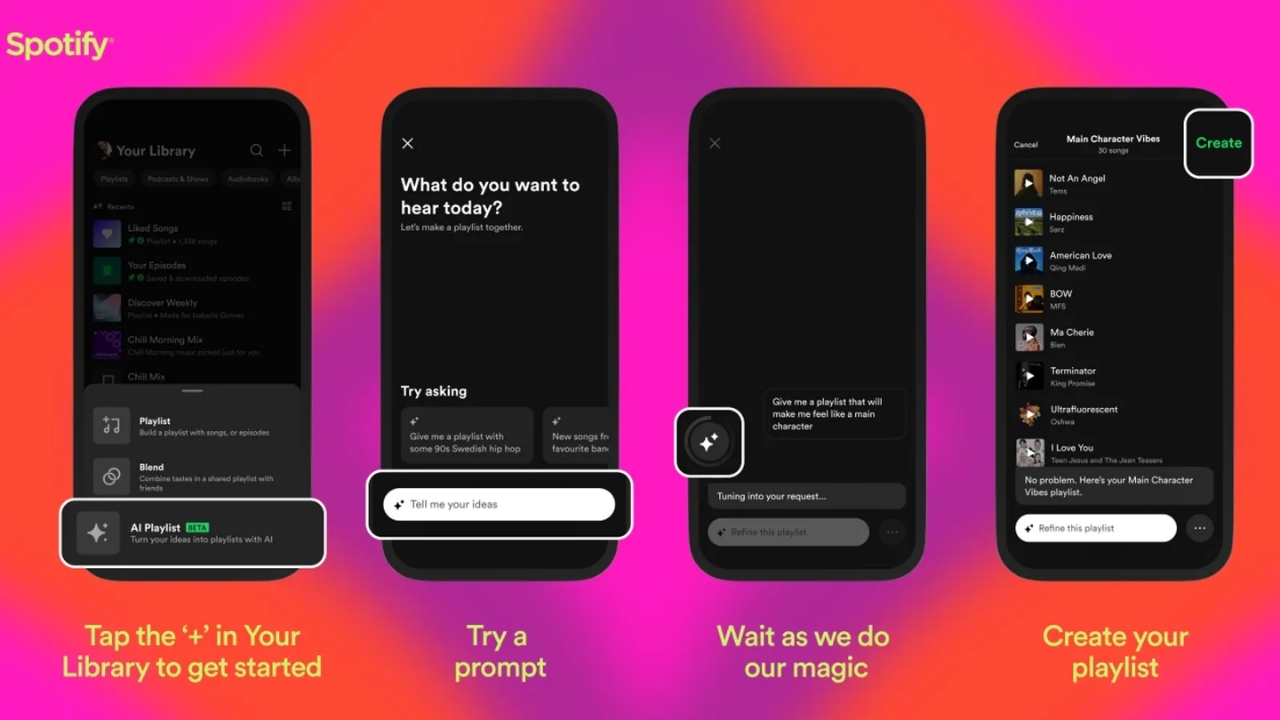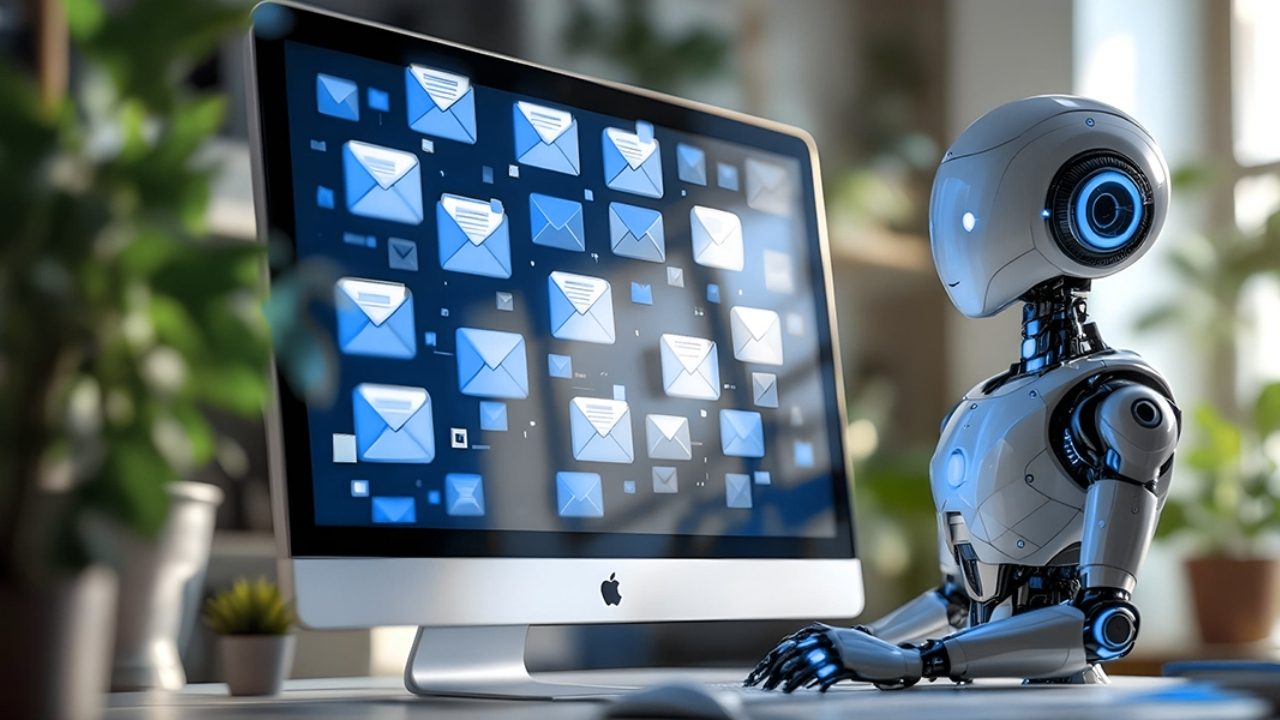AI Spotify playlists : Music is personal. But with millions of tracks available, finding the perfect playlist for every mood, activity, or event can be overwhelming. That’s where AI Spotify playlists come in — offering users curated, intelligent playlists tailored by algorithms, mood detection, and personal preferences.
Whether you’re a developer, digital creator, or music lover, building and monetizing tools or services around AI Spotify playlists gives you a way to serve a growing market that craves hyper-personalized audio content.
Why AI Spotify Playlists Are a Powerful Business Idea
1. Streaming Platforms Thrive on Curation
Spotify reports that 60% of listening time is spent on curated playlists. AI Spotify playlists enhance this experience by:
-
Matching energy levels and BPM to activities
-
Creating mood-based mixes using sentiment detection
-
Adapting to listening history or time of day
-
Recommending lesser-known songs based on taste clusters
2. Consumers Want More Than Static Playlists
Standard playlists get old. With AI, you can:
-
Deliver daily or weekly refreshed playlists
-
Allow users to generate playlists via text prompts
-
Recommend music for specific use cases (e.g., study, gym, travel, focus)
🔗 Learn how PlaylistAI helps users build Spotify playlists with AI using text and voice prompts, showcasing real-world application of playlist automation.
What to Include in an AI Spotify Playlist Generator
1. Mood and Genre Inputs
Let users specify:
-
Moods (happy, chill, sad, pumped)
-
Genres (lo-fi, EDM, acoustic, classical)
-
Decades or artist preferences
-
Custom titles and themes
2. Smart Filters and Adjustments
Offer filters like:
-
Explicit content toggle
-
Language preferences
-
Vocal vs instrumental
-
BPM range or key signature
3. Dynamic Playlist Updating
-
AI refreshes content weekly or based on feedback
-
Replace skipped songs automatically
-
Adapt to season or time-based listening trends
Example Prompt for AI Playlist Generation
Prompt: “Create a 20-song Spotify playlist for a rainy day in Paris. The mood is nostalgic, the genre is indie folk, and it should include both English and French songs.”
This kind of natural language input allows users to easily generate personalized playlists with emotional depth and variety.
How to Build an AI Spotify Playlist Platform or Tool
Step 1: Use the Spotify API
-
Authenticate users with Spotify OAuth
-
Access and modify playlists via Spotify’s Web API
-
Track song metadata: energy, danceability, tempo, mood
Step 2: Integrate AI for Playlist Logic
-
Use OpenAI or Claude for interpreting prompts
-
Use ML models or datasets like Spotify’s “Audio Features” for clustering
-
Apply sentiment analysis on text input or voice commands
Step 3: Frontend and Monetization Stack
-
Frontend: Next.js, Webflow, or Bubble
-
Backend: Node.js or Python with Flask
-
Payment: Stripe, Lemon Squeezy
-
Auth: Firebase or Auth0
Monetization Strategies for AI Spotify Playlist Services
1. Subscription Model
Offer tiered plans:
-
Free: 1 playlist/week
-
Pro: $5/month – Unlimited requests, AI moods
-
Premium: $15/month – Smart refresh, user profiles, genre packs
2. Affiliate Revenue from Music Tools
Promote:
-
Headphones
-
Mixing software
-
Spotify Premium links
-
T-shirts and playlist-themed merch
3. Sell Curated Playlist Packs
Create bundles like:
-
Focus & Work Mix
-
Party Starters
-
Meditation & Sleep Vibes
-
Road Trip Collections
Sell them via Gumroad, Ko-fi, or your own website.
Marketing Tips for AI Spotify Playlist Platforms
1. SEO and Blog Content
Write posts like:
-
“Top AI Tools to Generate Spotify Playlists in 2025”
-
“How to Build a Custom Playlist from a Text Prompt”
-
“Why AI Spotify Playlists Are Better Than Manual Curation”
2. TikTok and YouTube Shorts
Record yourself testing playlist prompts and reacting to the results.
3. Build an Email List With Freebies
Offer:
-
Free monthly playlist drops
-
Access to “hidden” AI-generated themes
-
Playlists for niche moods or situations
AI Spotify playlists are more than just a novelty — they’re the future of how listeners engage with music. Whether you’re helping people discover new tracks or offering curated vibes based on lifestyle, building an AI-powered music tool opens the door to recurring revenue, brand loyalty, and viral growth.







